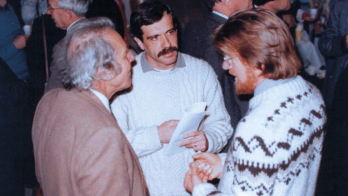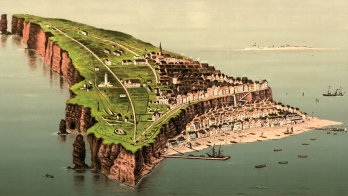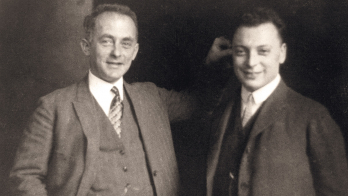by Gordon Fraser. Oxford University Press. Hardback ISBN 9780199208463 £25 ($49.95).
The late Abdus Salam – the only Nobel scientist from Pakistan – came from a small place in the Punjab called Jhang. The town is also famous for “Heer-Ranjha”, a legendary love story of the Romeo-and-Juliet style that has a special romantic appeal in the countryside around the town. Salam turned out to be another “Ranjha” from Jhang, whose first love happened to be theoretical physics. Cosmic Anger, Salam’s biography by Gordon Fraser, is a new, refreshing look at the life of this scientific genius from Pakistan.

I have read several articles and books about Salam and also met him several times, but I still found Fraser’s account instructive. What I find intriguing and interesting about Cosmic Anger is first the title, and second that each chapter of the book gives sufficient background and historical settings of the events that took place in the life of Salam. In this regard the first three chapters are especially interesting, in particular the third, where the author talks about Messiahs, Mahdis and Ahmadis. This shows in a definitive way the in-depth knowledge that Fraser has about Islam and the region where Salam was born.
In chapter 10, Fraser discusses the special relationship between Salam and the former President of Pakistan, Ayub Khan. I feel that more emphasis was required about the fact that for 16 years, from 1958 to 1974, Salam had the greatest influence on the scientific policies of Pakistan. On 4 August 1959, while inaugurating the Atomic Energy Commission, President Ayub said: “In the end, I must say how happy I am to see Prof. Abdus Salam in our midst. His attainments in the field of science at such a young age are a source of pride and inspiration for us and I am sure that his association with the commission will help to impart weight and prestige to the recommendations.” Salam was involved in setting up the Atomic Energy Commission and other institutes such as the Pakistan Institute of Nuclear Science and Technology and the Space and Upper Atmosphere Research Commission in Pakistan.
Finally, I find the book to be a well written account of the achievements of a genius who was a citizen of the world, destined to play a memorable role in the global development of science and technology. At the same time, in many ways Salam was very much a Pakistani. In the face of numerous provocations and frustrations, he insisted on keeping his nationality. He loved the Pakistani culture, its language, its customs, its cuisine and its soil where he was born and is buried.







